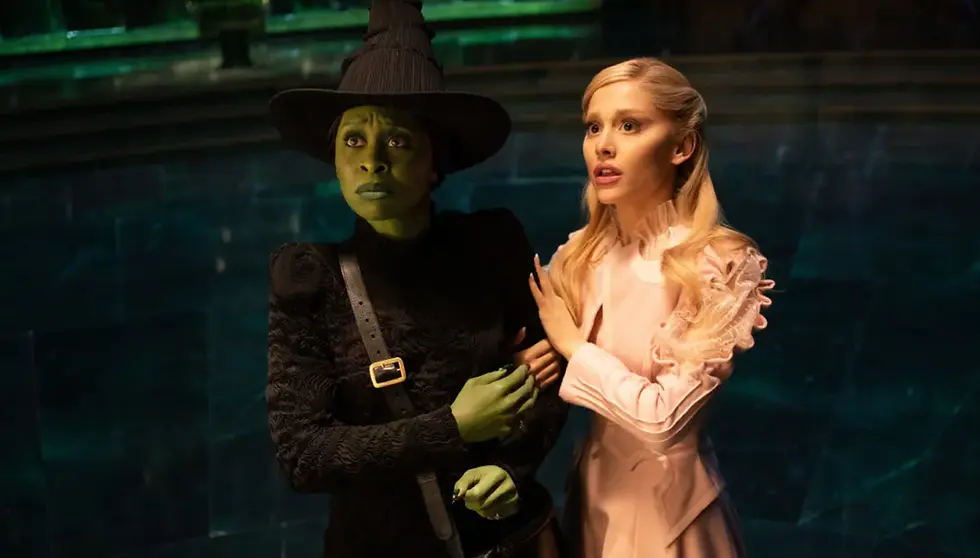In the Depths of Dead Love - Print Room at the Coronet
- comaweng
- Jan 22, 2017
- 3 min read

The last major protest that comes to mind against a theatre production in London was one headed by the religious extremist group Christian Voice, who protested Jerry Springer The Opera (in my view, it wasn’t really an opera) for portraying an adult Jesus in a nappy and other aspects of that show deemed offensive to certain religious people. Of course, if one has a religious faith, one would have thought that faith would be strong enough to withstand a show’s lampooning of it – consider, for instance, the response of the actual Church of Jesus Christ of Latter-Day Saints to The Book of Mormon musical.
I do not, as it happens, understand all there is to be understood about ‘yellowface’ (nothing to do with religion, phew!), except that in the context of the protests against In The Depths of Dead Love, it has gone far beyond a previous meaning, where Hollywood studios would put make-up on Caucasian actors to make them look East Asian. This practice still goes on – I don’t see many films, and never have been a movie buff – but I do recall Jim Sturgess (as well as other white actors) in Cloud Atlas appearing as though they were Asian. What the protesters here object to, amongst other things, is that no East Asian actors were auditioned for any of the parts with Asian names.
The Print Room, the host venue and production house for this run of In The Depths of Dead Love, has few friends amongst East Asians in the London theatre community, having accused them of bullying on social media. It even claims Equity has misrepresented them: Equity, being a performers’ union, doesn’t ‘represent’ theatres at all. But, as with the Jerry Springer case, a protest arises more interest in a show rather than less, and I must confess that had it not been for the very angry remarks made by people who sit on either side of the fence, I may never had bothered trekking over to Notting Hill to see this play.
I begin with a spoiler: there is no literal ‘yellowface’ going on in In The Depths of Dead Love. The press release, as I understand it, may have mentioned that it was set in ‘ancient China’, with no further specifics as to which century or in which part of China. There is no mention of setting in the show’s programme, however. It really could have been set anywhere before the telephone was invented, as characters are only exposed to further information by word of mouth. There could, I suppose, have been written correspondence, but this seemed unnecessary as the characters are well within comfortable commuting distance. And by commuting, I really mean walking.
To then have allegedly Chinese character names – Mrs Hu (Jane Bertish), Lord Ghang (William Chubb), Chin (James Clyde) and Lady Hasi (Stella Gonet) – therefore seems odd for a play with British accents. ‘Hasi’ to me sounds more Bollywood than Chinese. In any event, I don’t see why Western character names would not have sufficed. As I say, there isn’t any actual yellowface going on – nobody looks remotely Chinese. Even the costumes are Western. And despite a relatively short 95 minute running time, it takes an awfully long time to make one point: do what you damn well like (within reason, of course), and don’t let anyone stop you.
There’s this well. It’s bottomless, and those who pay the correct fee can jump in it and not come back. I found the writing, though mildly humorous in places, to be ultimately infantile, as though a primary school child had thumbed through a thesaurus and found miscellaneous ways to describe chucking someone in. It’s a form of Dignitas before there was Dignitas, but without any forms and signed documents in the presence of independent witnesses (and all the other jazz that indemnifies Dignitas from being sued by objecting relatives and other interested parties).
Some people take the plunge, eventually. (Or do they?) It got so boring and drawn-out I felt like bunging them all in there myself. Or ‘push’ them. Or ‘tip’ them. Or ‘barge’ into them. Or strategically place them in. Or deliberately ‘shove’. There’s not much to take away from this play, other than that those stupid and selfish enough to take their own lives despite not having a terminal illness, will find the determination to do so. I suppose there might be a consideration of what others could do to reach out to such people contemplating being taken by their own hand, but the play doesn’t explore this: a missed opportunity to give audiences something to think about.
It’s all over the place. It’s so sedate it has the sense of urgency that exists amongst Post Office staff when there’s a queue of customers waiting. Dull with a capital D.
Two stars




Comments